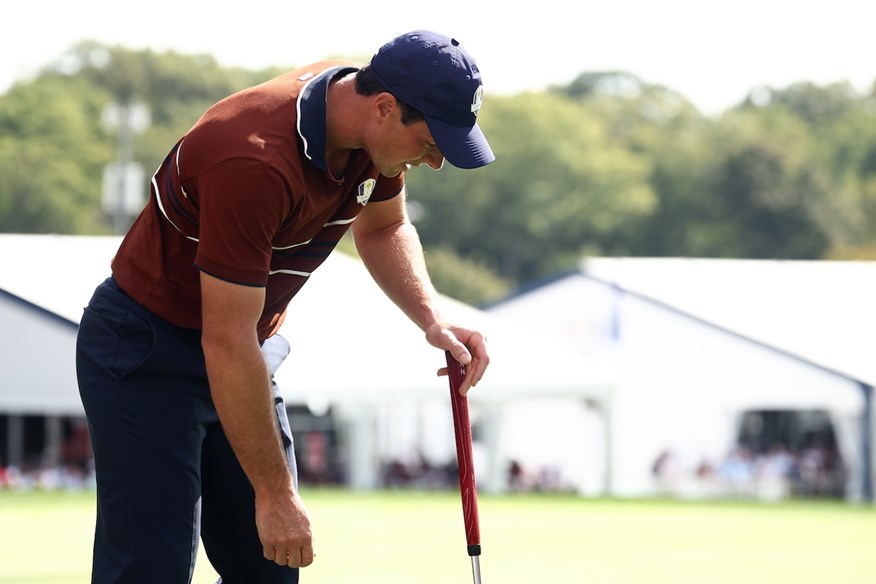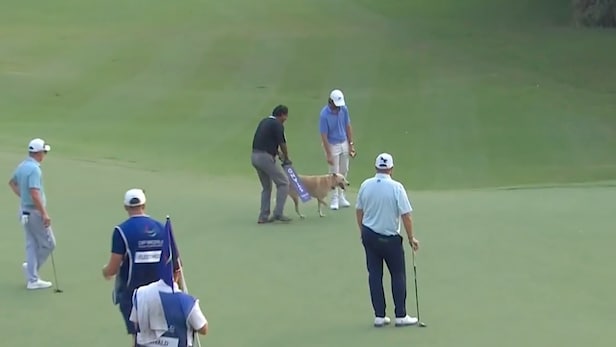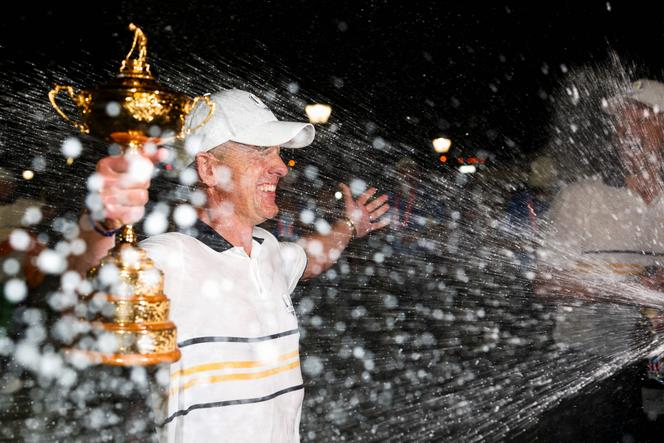Viktor Hovland’s withdrawal from Sunday’s singles matches at Bethpage led to many to call for the envelope rule to be scrapped. Now, the Norwegian has had his say…
Viktor Hovland has spoken about his regret at being forced to pull out of the final day of last month’s Ryder Cup – but does not think the rules should change.
The Norwegian hurt himself during a particularly intense foursomes match alongside Robert MacIntyre on the Saturday, in which the European pair edged the American duo of Scottie Scheffler and Russell Henley by a single hole.
Hovland was replaced by Tyrrell Hatton to accompany Matt Fitzpatrick in that afternoon’s fourballs and was later sent for an MRI scan that revealed a bulging disc in his neck. On Sunday morning he decided he was not fully fit, and withdrew from the singles. Per the Ryder Cup’s envelope rule, Hovland and scheduled opponent Harris English shared the point.
The US team, who trailed by a record seven points going into the final day, won six of the 11 singles matches that did go ahead to turn a potential trouncing into what ended up being a highly-respectable 15-13 defeat.
It led to many pundits – including one not too far from here – to call for the rule to be changed. US captain Keegan Bradley also weighed in, describing it as “strange” before adding that it should not still be in place by the next Ryder Cup.
Speaking ahead of the inaugural DP World India Championship – in which he decided to play at the last minute having not swung a club until late last week – Hovland admitted he found the whole situation “pretty upsetting”.
He added: “Just the fact that I didn’t get to play, and I felt really bad for Harris, who also didn’t get to play a match, even though there was nothing wrong with him. He just didn’t get to play, and he was upset about that, and I feel very bad for not being able to compete.
“It’s tough. In sport, we’re so used to [the fact] that if you can’t play because you’re hurt, obviously that should be a loss of point. But I think in the spirit of the Ryder Cup and the spirit of the game and the history of it, knowing that this Ryder Cup is just a part of many, many Ryder Cups to come, I think it’s more of a gentlemen’s agreement that, OK, you were hurt this time and maybe the next time there’s a guy on the US team and we’re all kind of sympathetic about the person being hurt and not being able to play.”

Hovland explained that he had turned up on Sunday morning at Bethpage with every intention to play, only to change his mind when he tried to swing his driver. But he was also keen to dismiss any suggestion that he pulled out to put half a point on the board before play had even got underway.
“There’s a mutual understanding that if we were healthy we would all go out there and play,” he said. “I don’t think people are using that to really finagle the system and try and squeak by.”
The 27-year-old also explained why awarding a full point to a withdrawn player’s opponent wouldn’t work.
“If you do change the rule and you give away a point, now there’s also the angle that, knowing that the other team is going to put out their best player most likely in the first few groups, they can just kind of put me out as a sacrificial lamb and take the L against their best player.
“So, I don’t think there’s any ideal way to do it, but the most. I think [the envelope rule] is just a better way overall to do it.”
This year’s Ryder Cup was just the third time the envelope rule was needed. American Steve Pate withdrew midway through 1991’s ‘War on the Shore’ after a minor car accident, while Europe’s Sam Torrance suffered an infected toe at The Belfry two years later.







